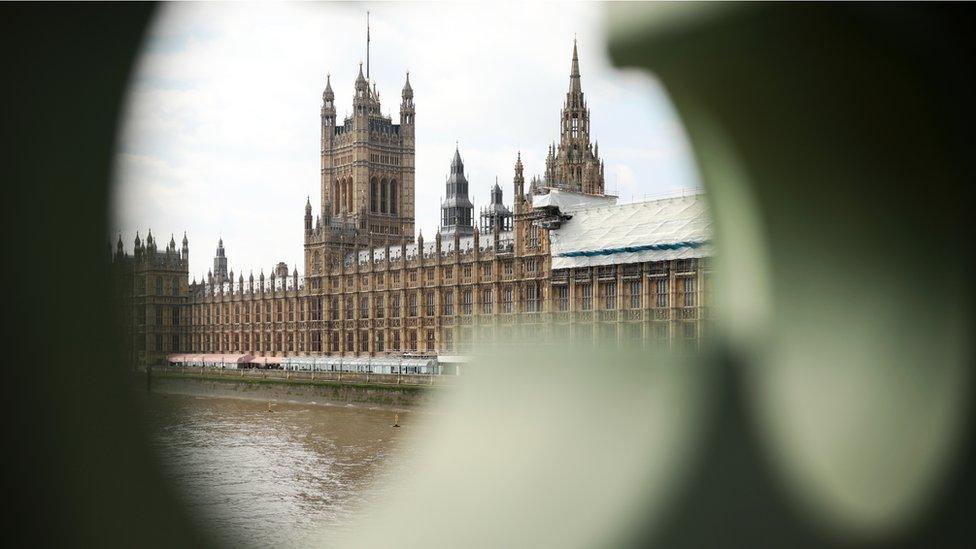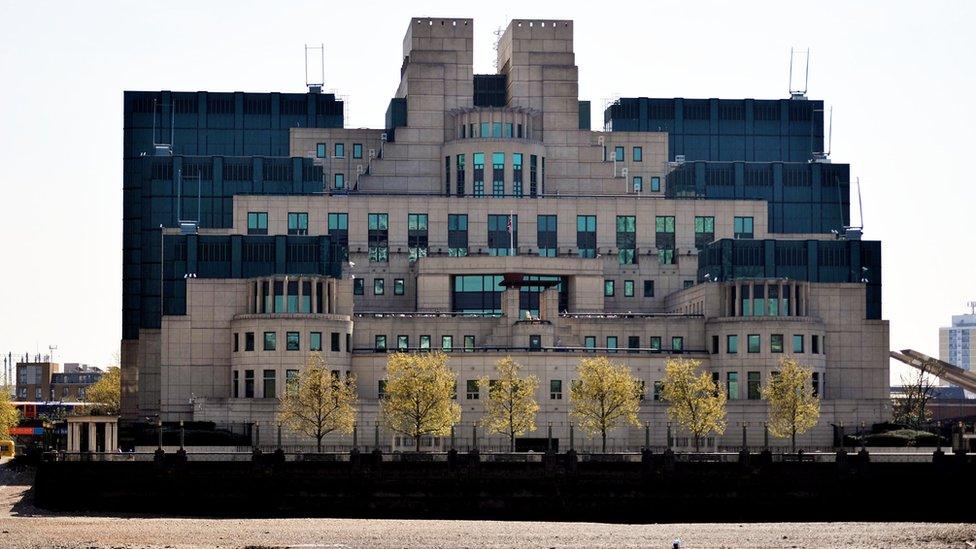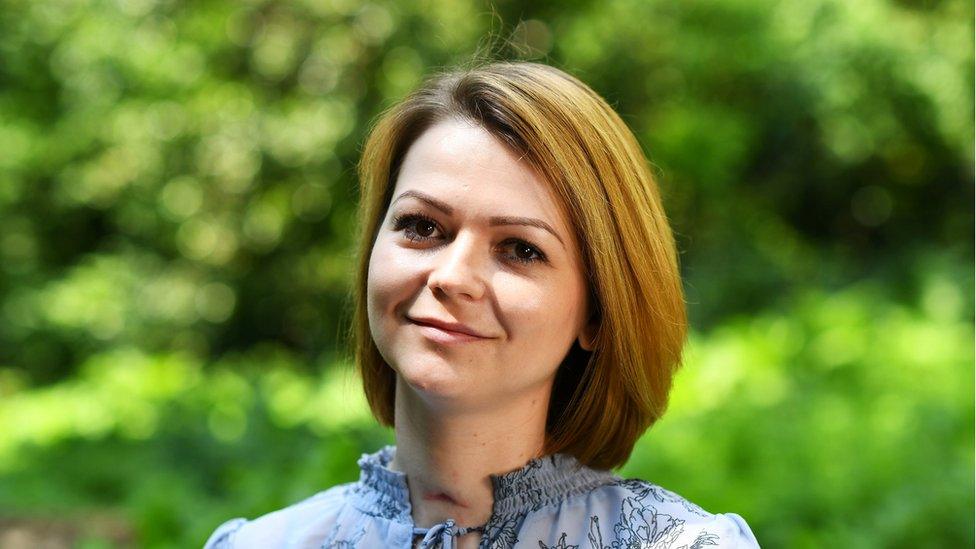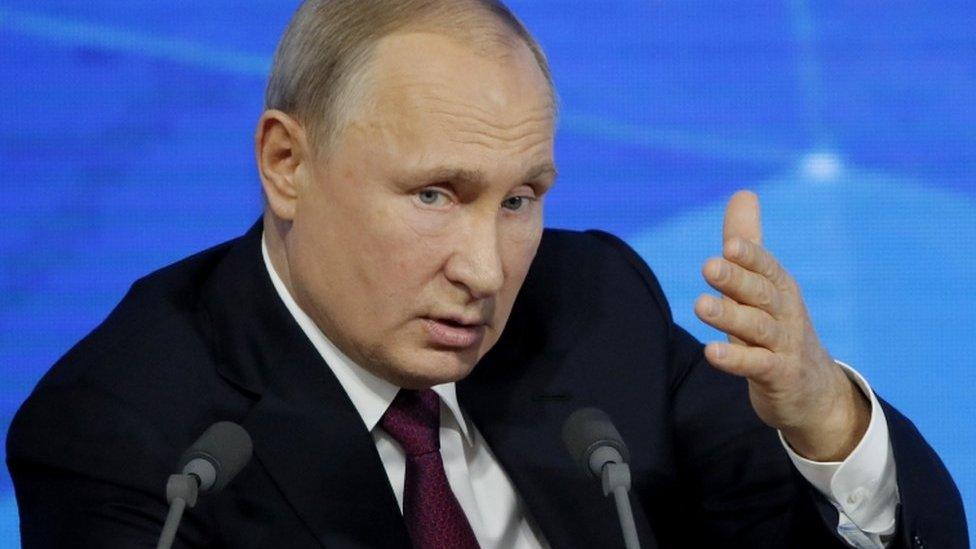Russia report: When can we expect it to be published?
- Published

A long-awaited Parliamentary report into alleged Russian interference in UK democracy is yet to be published.
The results of the inquiry from the Intelligence Security Committee, begun in November 2017, were passed to Boris Johnson in October last year.
The prime minister has promised MPs it will be published - but it is yet to appear.
He said on Wednesday that it would be disclosed after the committee, which was disbanded at December's election, is up and running again.
But former chair of the committee, Dominic Grieve, told the BBC the reasons for its non-publication are "entirely bogus".
What is the Intelligence and Security Committee?
It was set up in 1994 in order to allow Parliamentarians to scrutinise the work of the UK's security services.
The nine-member committee is made up of MPs and peers from different parties - ministers are not allowed to be members.
Under the Justice and Security Act 2013, they are allowed to examine the "expenditure, administration, policy and operations" of MI6, MI5, GCHQ, and the government.

MI6 is among the security bodies scrutinised by the committee
In the last few years, the committee has published reports on issues including the terrorist attacks in 2017 and diversity in the intelligence industry.
Unlike other committees in Parliament, the prime minister has power over who is a member - although the chair is chosen by members themselves.
What is the Russia report?
The decision to start an inquiry into Russian interference in the UK was partly prompted by developments after the Russian invasion of Crimea in 2014.
The committee's annual report, external mentioned the US intelligence community's assessment of Russian interference in the 2016 presidential election and possible interference in the Brexit referendum.
After the poisoning of ex-Russian spy Sergei Skripal and his daughter Yulia in March, the investigation became the "primary focus" of the committee in 2018.

Yulia Skripal and her father Sergei were exposed to nerve agent Novichok in Salisbury
The report was completed in March 2019, but then had to go through a process of redaction, where the government and security agencies make sure no confidential information is published.
Mr Grieve told MPs , externalthat this process had finished and the report was sent to the prime minister on 17 October.
Usually, once a report is signed off, it can be presented to Parliament - and therefore the public.
What does the government say?
During a BBC Question Time special in the run-up to the election, Mr Johnson said he saw "no reason to interfere in the normal timetable for these things just because there's an election going on".
He added that he had seen "absolutely no evidence" of interference in "any British electoral event".
Ministers have also argued that it is not unusual for there to be a delay between sign-off and publication, which is why nothing was released before the general election in December.
Boris Johnson was challenged about the Russia report during the election
Now that a new Parliament has formed, the committee has to be set up from scratch. It is probably only once this has happened that the document can be released.
When pressed on the issue at Prime Minister's Questions on Wednesday, Mr Johnson said: "The report will of course be published...when the Intelligence and Security Committee is reconstituted."
He went on to accuse SNP MP Owen Thompson, who said the lack of publication so far was unacceptable, of having a "conspiratorial frame of mind".
But the formation of the new committee is largely the responsibility of the government, which has to consult the leader of the Labour Party regarding its members.
Where are we now?
It all comes down to how quickly a new committee can be formed. After the 2017 election, it took many months and there is no sign of progress at this stage.
It is unclear what - if anything - will come from the publication of the report itself.
Mr Grieve said the document had "never been marketed by anybody as having smoking gun properties", making the delay "all the more mysterious".
He added: "I would be surprised if we were to see it before Easter".
Asked to comment, a UK government spokesperson declined to add anything beyond what Mr Johnson has previously told Parliament.
- Published10 November 2019
- Published4 November 2019
